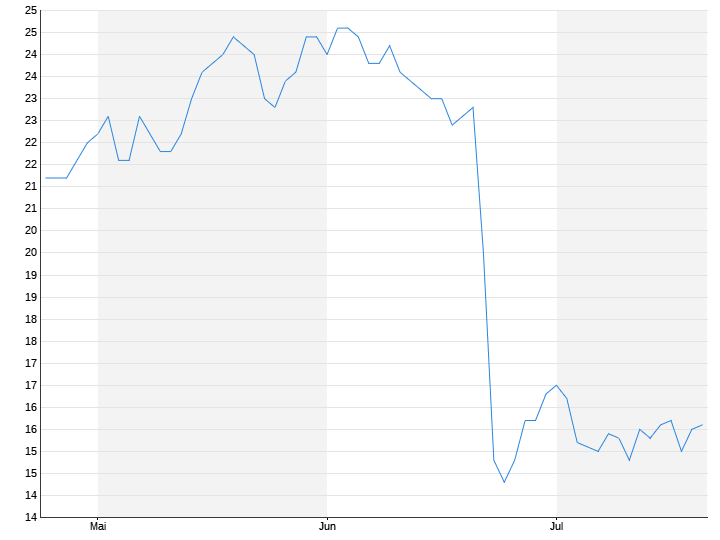Criticism of dealings with Rosatom
Siemens Energy remains loyal to Russia’s nuclear company
By Marc Dimpfel
7/22/2023, 4:36 p.m
Despite the Ukraine war, Siemens Energy continues to maintain business relationships with the Russian state-owned company Rosatom. Participation in a nuclear power plant project in Hungary in particular caused criticism. Siemens Energy defends itself.
The European Union is making an exception when it comes to sanctions against the Russian energy sector. Unlike oil, gas and coal, there are no trade restrictions in the nuclear industry. A report from the environmental organization Greenpeace According to him, two Western companies in particular will benefit from this: the French company Framatome and the German company Siemens Energy.
Her most important business partner is not just any company, but Rosatom, which reports directly to the Kremlin. The state-owned company is responsible for the civil as well as the military sector of Russian nuclear power. In Ukraine, Rosatom has taken over the operation of the Zaporizhia nuclear power plant, which is occupied by Russian armed forces.
“Major European companies have ongoing contracts worth hundreds of millions of euros to export their cutting-edge technology and expertise to Russian nuclear power plants and Rosatom’s nuclear projects abroad,” the Greenpeace report said. Framatome and Siemens Energy would play “a key role in Rosatom’s nuclear program” and would thus indirectly support the Russian attack on Ukraine.
Siemens Energy wants to honor contracts
Tim Proll-Gerwe, spokesman for Siemens Energy, responds to Greenpeace’s allegations Twitter: “Our employees do not work for Rosatom in Russia and we have no ‘lucrative’ contracts; the turnover in 2022 was in the single-digit million range.” His company will comply with existing contracts, “even under special circumstances”. In addition, Siemens Energy does not supply hot core technology, but safety and control technology.
However, Greenpeace refers to exactly this control technology. Such systems are referred to by experts as the brains of the power plants because they can control plants independently and even switch off reactors in an emergency. Siemens Energy spokesman Proll-Gerwe counters that the control technology is not used in nuclear power plants in Russia, rather it ensures the safety of European power plants.
He probably also means the nuclear power plant in Paks, Hungary. Rosatom is currently building two new reactor units there. In 2019 and 2020, Siemens Energy signed contracts for the supply of control technology, only the approval of the Federal Office of Economics and Export Control is still pending. Such a system costs several hundred million euros.
Delivery would “actively support warmongers”
That meets with criticism. “By supplying important components for Rosatom’s Paks II nuclear power plant project in Hungary, Siemens Energy would actively support warmongers and increase Europe’s dependence on Russia,” Sebastian Roetters from the environmental protection organization Urgewald told Handelsblatt. Siemens Energy, on the other hand, emphasizes that various governments within the EU “explicitly asked, even after Russia’s attack on Ukraine, to supply our control technology for the Paks II project in Hungary”. The company is the only provider of control technology that can meet European safety standards.
At the request of ntv.de, Siemens Energy refers to its annual general meeting in February. CEO Christian Bruch said at the time that the contracts were signed before the Russian invasion of Ukraine and that there was no new business. “We are fundamentally bound by existing contracts.”
The Russian environmental activist and winner of the Alternative Nobel Prize, Vladimir Slivyak, also spoke at that shareholders’ meeting. He asked management to halt all dealings with Rosatom. The state-owned company is part of the Kremlin’s geopolitical plan to make as many countries as possible dependent on Russia, and is also directly involved in the Ukraine war through the operation of the Zaporizhia nuclear power plant. “Working with war criminals should be unacceptable for any European company.”
Greenpeace warns against military use
According to the Greenpeace report, Siemens Energy’s cutting-edge technology could even be used in Russia’s nuclear military program, such as powering submarine reactors. “Rosatom is responsible for all areas of Russia’s nuclear program – from reactor systems to weapons to submarines.” There is already “a very real risk that European companies have supplied Russia with weapons-grade nuclear technology.”
The federal government has long advocated restricting trade in fuel rods and nuclear power technology with Russia. Economics Minister Robert Habeck called in April for the civil nuclear sector to be included in future EU sanctions packages. Moscow is no longer a reliable partner. So far, however, the EU has not been able to bring itself to impose sanctions on the Russian nuclear industry.
In addition to Hungary, France in particular is blocking such a decision. The country relies primarily on nuclear power for its energy supply and obtains parts of its uranium from Russia. In addition, the Framatome Group maintains close ties with Rosatom. Both companies operate a joint plant for nuclear fuel rods in Lingen, Lower Saxony.
Overall, according to an analysis of Austrian Federal Environment Agency 21 nuclear reactors in the EU supplied with fuel rods from Rosatom, mainly in the countries of Eastern Europe. Accordingly, the state-owned company covers almost a quarter of the uranium deliveries to the EU. The paper shows that around a year and a half after the outbreak of war, Europe is still dependent on Russia’s nuclear industry.
